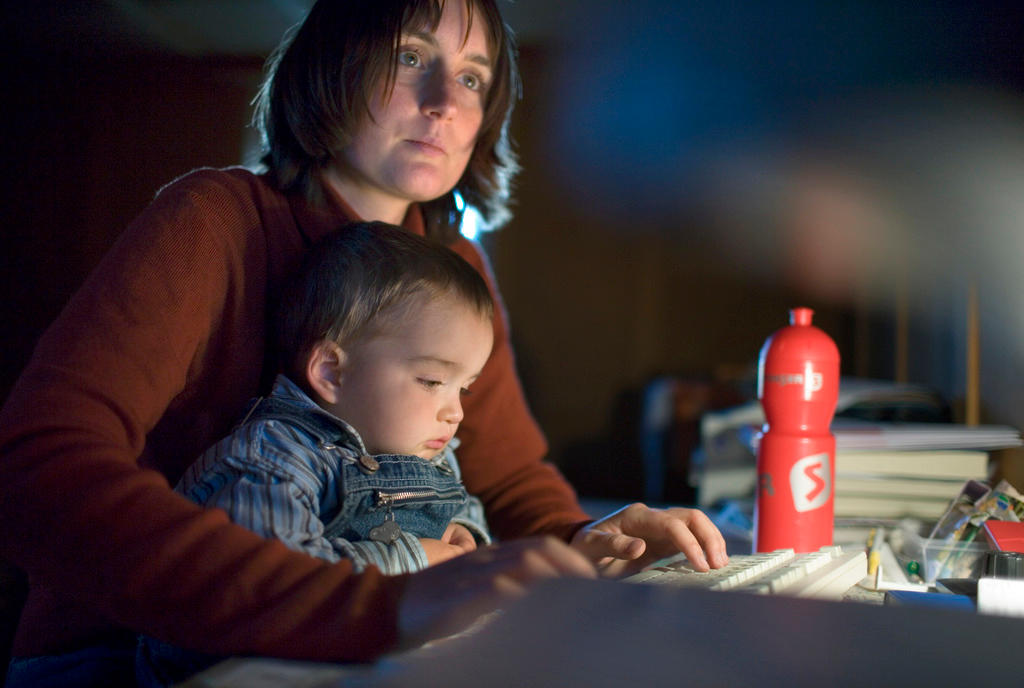
Maternity break can cost over a fifth of lifetime earnings

Taking a career break due to motherhood can cost Swiss women 3.2% of their lifetime earnings for every year spent out of the labour market.
According to a study commissioned by Pro FamiliaExternal link, women with university education have most to lose in financial terms. They spend an average of 6.7 years away from the workplace after the birth of their child. This can cost them on average CHF20,000 ($19,920) per year away or CHF470,000 over their working lives.
Most of the decrease in income is due to the loss of work experience. But the authors of the study do not rule out discrimination on account of maternal status, i.e. the employer assuming that women are more likely to be absent in the event of a child’s illness.
The authors of the study recommend increasing the number of out-of-home child care places by 30% to address this problem. The equivalent of 18,000 additional child care options would increase the average female labour force participation rate from 61% to 72%. The cost of this measure would amount to just under CHF500 million francs per year. The study’s authors claim that most of the cost would be borne by the parents. The remaining CHF166 million would be offset by the tax revenues of working mothers.

More
Mothers face double-edged sword in Swiss workplace culture

In compliance with the JTI standards
More: SWI swissinfo.ch certified by the Journalism Trust Initiative




























You can find an overview of ongoing debates with our journalists here . Please join us!
If you want to start a conversation about a topic raised in this article or want to report factual errors, email us at english@swissinfo.ch.